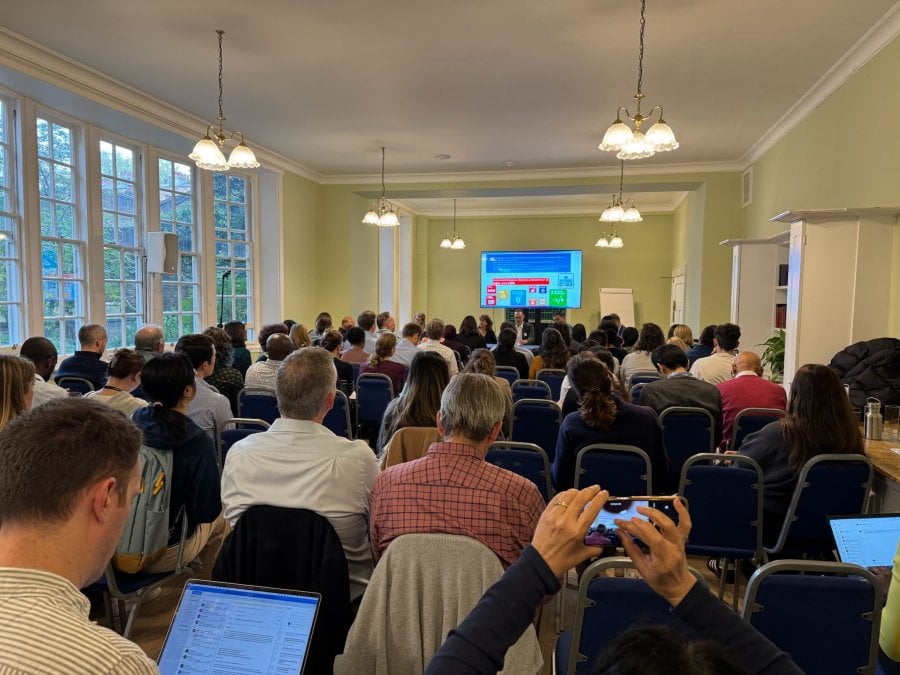
AMR-data-symposium
What are the tools that are currently used to analyse and convert routine surveillance microbiology data into usable epidemiological insights? What are the challenges and barriers facing such tools and the wider analysis of AMR data? How do these issues affect burden estimates and policies to achieve the UNGA targets?
These questions and many more were discussed at our AMR Data Day Symposium (jointly supported by DASH) last Monday - a big thanks to all involved for such interesting presentations and discussions.
The day started with a presentation of tools used to analyse quantitative AMR data. Many of the tools are already widely used in the international community (e.g. WhoNET) but several are new initiatives, using principals of open code in R (e.g. SEDRI-LIMS and the AMR package) to support the wider community in adapting tools to specific settings. The two first sessions on tools are available now to watch back online.
Our next session discussed the issues faced by many of these tools, with international panel members describing their experience of data sharing between countries and across sectors. In particular, concerns about sustainability, interoperability and the underlying logistics of data sharing were mentioned, with software solutions from international foundations, such as Software for Health foundation, or more local settings (e.g. in Madagascar and Burkina Faso) being developed.
Across the day, a big theme was data quality. There were calls for improved data standards as well as metrics for assessing data quality with the variability across lab procedures, resistance measures and clinical sampling all pointing to issues with the data flow from surveillance to epidemiology. Data quality metrics would aid not only with burden estimates and supporting local empiric therapy design but also prevent AMR analysis from being left out of the most cutting-edge algorithms for insight. Speed of access and user needs were also raised in terms of potential missed opportunities and importance of local evidence. Without this feedback, data quality is unlikely to improve. However, the ACORN project, with close linkage between clinical care and results, is starting to show a potential way forward for improved data collection.
In additional to data quality, the lack of certain data linkages was also discussed. Most tools presented focused on the routinely collected microbiology surveillance data, with few attempting to link consistently to patient level or pharmacy data. In particular, understanding who is sampled and why, who received an antibiotic before a sample and why, and clinical outcomes would feedback to improved data quality and enable a better understanding of AMR burden and impact.
We ended the day with a focus on the link between data and policy in the light of the UNGA targets. Much of the discussion here was about the difficulties of measuring the achievement of the targets with the current burden uncertainty and the need for tailoring to local context - do we need a “north” and “south” star target? Or do we already know what to do within other targets such as the Sustainable Development Goals on WASH? AMR is not a standalone issue nor one where targets appropriate to one country would be acceptable in another (e.g. limits on antibiotic use in livestock). It will also be affected by wider demographic changes.
In terms of next steps, as a community we need to advocate for the international panel for evidence - although the commitments are in place, the shape, scale and scope of this panel are yet to be decided. We need a robust panel to synthesise existing evidence and push for better data to answer the question of “how do we position evidence to best support countries to know what best to do?”. We at the AMR Centre will work to do this as well as summarising the tools and thinking from this event for a wider commentary piece.
If you enjoyed this article and would like to build a career in global health, we offer a range of MSc programmes covering health and data, infectious and tropical diseases, population health, and public health and policy.
Available on campus or online, including flexible study that works around your work and home life, be part of a global community at the UK's no.1 public health university.
